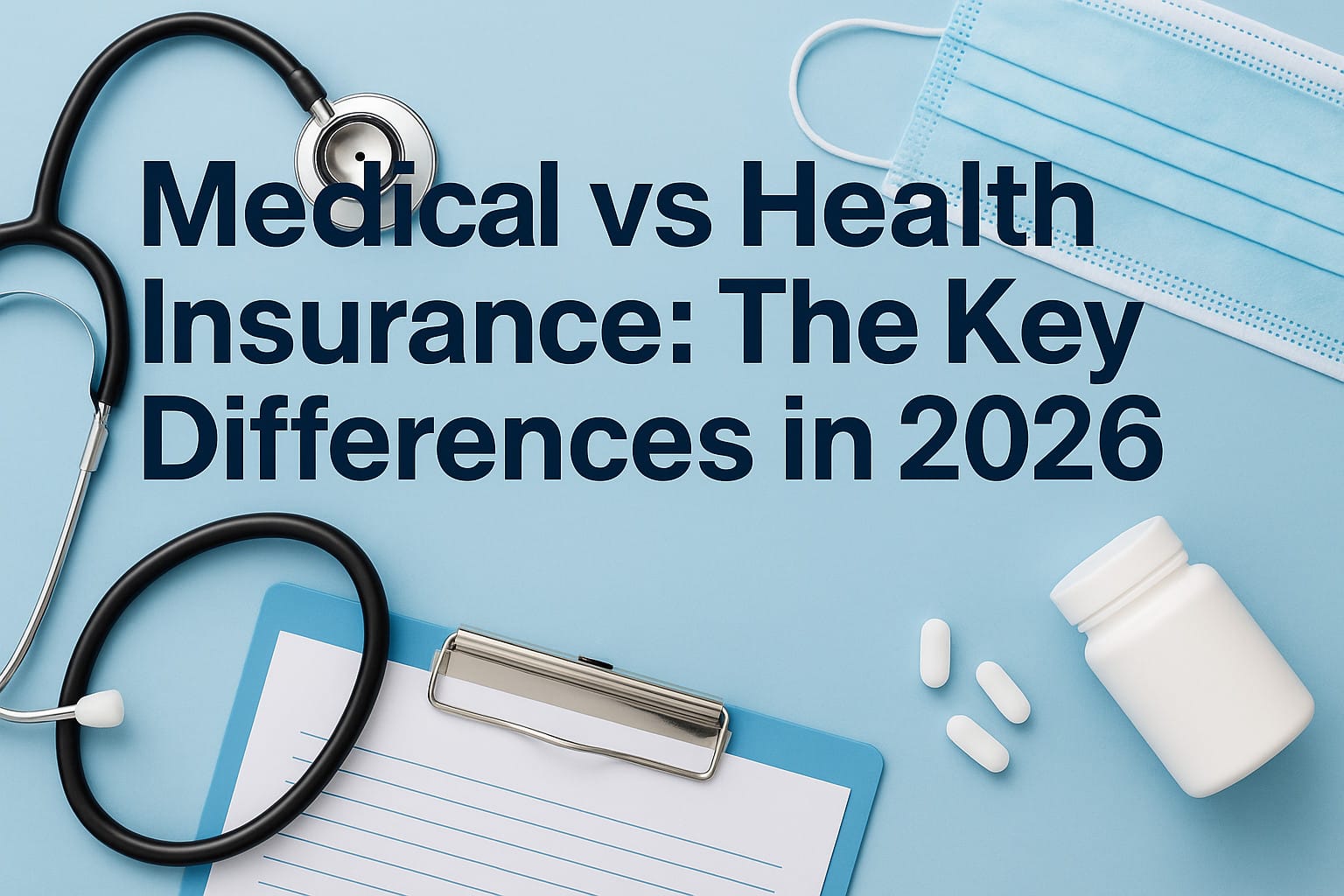Health insurance is important for managing your money, especially in the UAE, where medical costs can be high. There are many rules to follow and many new and complicated words to understand. Reading the details in the policy will help you learn these terms. A term that often confuses people is “deductible.” Knowing what a health insurance deductible in the UAE is and how it works can help you choose the right health insurance.
What is health insurance deductible?
A deductible in health insurance is the amount of money you need to pay yourself before your insurance starts paying for your medical costs. This means you share the costs with your insurance company.
For example, if your insurance plan has a deductible of AED 1,000, you have to pay the first AED 1,000 of your medical bills. After you pay this amount, your insurance will spend the rest based on what your policy says.
How does health insurance deductible work in the UAE?
In the UAE, deductibles work similarly to other countries, but the exact amount and how they apply can change depending on your plan and insurance company.
Let’s understand how it works by looking at a real-life case study:
Scenario – Sarah’a health insurance plan
Sarah is an expat living in Dubai, UAE. She decided to buy health insurance to cover any medical expenses. She chose a plan from a trusted insurance company that fit her needs and budget.
Here’s how deductibles affected her insurance experience:
1. Choosing a plan:
Sarah looked at different health insurance plans and picked one that seemed right for her. This plan had a lower monthly premium of AED 200 but included a deductible of AED 2,500. She chose this plan because she wanted to save money on monthly payments, even though she would have to pay more out of pocket if she needed medical care.
2. Paying the deductible:
A few months after getting her insurance, Sarah got a severe flu and went to a private clinic. The visit, including consultation and medication, cost AED 800. Since her deductible was AED 2,500, Sarah had to pay the AED 800 herself. This payment reduced her remaining deductible to AED 1,700.
3. Insurance coverage starts:
Later that year, Sarah needed minor surgery that cost AED 4,000. By this time, she had already paid AED 2,500 to meet her deductible for the year. Now that she met her deductible, her insurance began covering the costs. According to her plan, the insurance covered 80% of the surgery cost, and Sarah had to pay the remaining 20%. So, the insurance company paid AED 3,200, and Sarah paid AED 800.
4. Resets every year:
Sarah’s insurance policy renews every January, which means her deductible resets. If she has any medical expenses after January, she would need to pay the AED 2,500 deductible again before her insurance starts covering costs.
This example shows that choosing a plan with a higher deductible can help save on monthly payments but requires paying more out of pocket until the deductible is met. It also highlights the importance of understanding that deductibles reset every year, meaning you start over with each new policy year. This case helps explain how a health insurance deductible works in the UAE and why it’s important to pick a plan that suits both your health needs and budget.
Why choose deductibles?
Lower premiums
Opting for deductibles means paying a lower premium. The insurance company requires you to pay some medical costs first. The higher the deductible, the lower the premium. This is good for people who can afford small medical expenses like prescription drugs or doctor visits but want insurance for big costs.
Why is it important in health insurance?
Prevents unnecessary claims
When policyholders pay part of their medical bills, they are less likely to make unnecessary claims or spend on things they don’t need. This makes them more careful about their healthcare spending.
Improves claim settlement rates
Fewer claims mean a higher chance of getting your claims approved. With fewer claims filed, policyholders are more likely to receive a no-claim bonus, a reward for not filing any claims.
Reduces premium costs
Paying a deductible helps lower the cost of your premium. Since the deductible is directly linked to the premium amount, paying a higher deductible means you will pay less in monthly premiums.
What are the different types of deductibles?
There are 5 main types of health insurance deductibles, and it’s important to understand each one to know what a deductible means:
| Type | Definition | To be paid |
| Compulsory | A set amount you must pay every time you make a claim. | When settling a claim |
| Voluntary | An extra amount you choose to pay at the time of a claim to lower premiums. | When settling a claim |
| Comprehensive | Applies to all types of coverage and is paid until it’s fully covered. | When settling a claim |
| Non-comprehensive | Applies only to certain types of coverage or expenses. | When settling a claim |
| Cumulative | Combined deductibles for family or group plans, paid by each insured person. | When settling a claim |
About these deductibles:
1. Compulsory deductibles: The insurance company sets these up and includes them in the insurance plan. The deductible amount and premium are decided beforehand.
2. Voluntary deductibles: Policyholders can choose to have these. You decide the amount, and the higher the deductible you choose, the lower your premium will be.
3. Comprehensive deductibles: These can be either fixed or voluntary. They apply to all services and expenses covered by the insurance plan.
4. Non-comprehensive deductibles: These can also be fixed or voluntary. They only apply to certain services, like surgeries or hospitalisation.
5. Cumulative deductibles: These can be compulsory or voluntary and are shared by everyone in a group or family insurance plan.
How to choose the right deductible for your health insurance policy in the UAE?
Choosing the right health insurance deductible depends on your health needs, budget, and how often you use medical services. Follow these steps to make a good decision:
1. Look at your health needs:
Think about how often you see the doctor, if you have any long-term health conditions and if you might need surgery or other big health expenses in the next year.
2. Check your budget:
Consider how much you can pay from your pocket if you need medical care. A plan with a higher deductible might be better if you want lower monthly payments and can handle higher costs when you need care.
3. Compare different plans:
Look at various insurance plans and compare the deductibles, monthly payments, and maximum out-of-pocket costs. Also, check which doctors and hospitals are included in each plan.
4. See if routine care is covered:
Some plans cover regular check-ups and screenings without requiring you to pay the deductible first, saving you money if you need regular medical care.
5. Understand your policy:
Make sure you know all the details of your insurance policy, including what services count towards your deductible and what does not.
Factors that affect how deductibles are calculated
Several factors can influence the calculation of a health insurance deductible in an insurance plan in the UAE. These factors can make your premium and deductible higher or lower, depending on if the insurance company thinks you are a high-risk person.
- Existing health issues: If you have any long-term or ongoing health problems.
- Current health condition: Your overall health at the time of getting insurance.
- Medical History: Your past health issues or surgeries.
- Lifestyle choices: Habits like drinking, smoking, or using tobacco.
What’s the bottom line?
Understanding health insurance deductible in the UAE helps you manage your medical costs. A deductible is the amount you pay before your insurance begins to cover expenses. Picking a deductible that fits your health needs and budget lets you balance monthly payments with out-of-pocket costs when you need care. Higher deductibles mean you pay less each month but more when you need medical services.
To compare how different providers handle deductibles and other costs, explore our guide on the top health insurance providers in the UAE. It’s always a good idea to consult with a healthcare advisor or insurance broker to make the best choice for your specific needs, financial situation, and associated risks. This way, you have the right coverage when you need it. And when the time comes to use your insurance.
Frequently Asked Questions (FAQs)
Q. What is the difference between a deductible and a copay?
A deductible is the amount of money you must pay each year for covered services before your insurance begins to help with costs. A copay is a fixed fee you pay for certain services, like a doctor’s visit or a prescription, even after your insurance starts covering costs.
Q. What is the purpose of a deductible?
A deductible is the amount you need to pay before your insurance starts covering your claims. Insurance companies use deductibles to make sure you share some of the costs and are careful about making claims.
Q. What is another term for insurance deductible?
A co-payment is often another term for a deductible, where you pay a set amount for certain services. Co-insurance, on the other hand, is a percentage of the total bill that you pay after you’ve met your deductible.
Q. What happens if I don’t meet my deductible?
If you don’t meet your deductible, you’ll be responsible for paying all your covered healthcare expenses up to that amount. Your insurance will start covering costs after the deductible is met.
Q. Can I change my deductible amount during the policy term?
Generally, you can only change your deductible once your policy is up for renewal. However, checking with your insurance company for specific terms and conditions is best.







